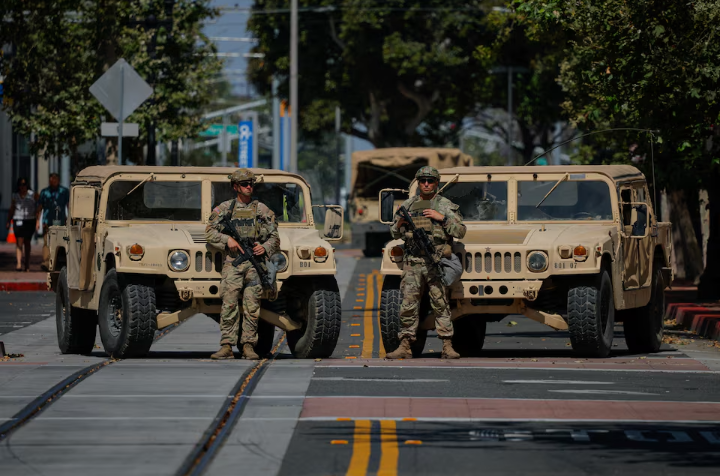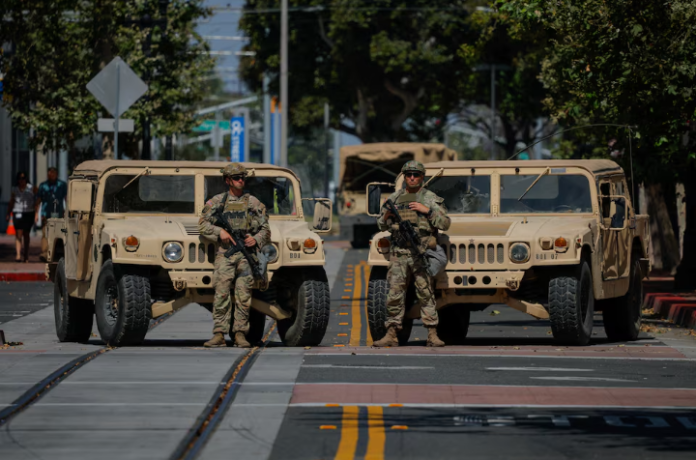In a high-stakes legal battle that could redefine presidential power, a U.S. federal appeals court has allowed former President Donald Trump to temporarily maintain control of California’s National Guard—despite opposition from state officials and Governor Gavin Newsom.
On Thursday, a panel of judges from the 9th U.S. Circuit Court of Appeals paused a lower court ruling that declared Trump’s deployment of troops in Los Angeles illegal. The decision means Trump can continue using the National Guard for now, while the broader legal fight plays out.
The case began after Trump ordered 4,000 National Guard members and 700 U.S. Marines to the streets of Los Angeles on June 7, 2025, in response to escalating protests over federal immigration raids. Newsom immediately challenged the order, accusing Trump of bypassing legal protocols and abusing his authority to use military force within the state.
Judge Charles Breyer originally ruled on June 12 that Trump had violated federal law by not coordinating properly with the state’s governor. He also argued the legal grounds to “federalize” the National Guard—such as rebellion, invasion, or an inability to enforce federal law—were not met. Breyer ordered Trump to return control of the National Guard to California.
But within hours, the appeals court temporarily halted that decision. On June 19, the same court extended the pause, stating that Trump “likely acted within his authority” and had at least some level of coordination with Newsom. The court emphasized that while the president can federalize state troops, this doesn’t mean they can be used for any activity—including law enforcement—without restriction.
Still, the battle is far from over.
Governor Newsom, in a post on X (formerly Twitter), remained defiant: “The president is not a king and is not above the law. We will press forward with our challenge to President Trump’s authoritarian use of U.S. military soldiers against our citizens.”
Trump, in contrast, celebrated the ruling on Truth Social: “This is a great decision for our country… We will continue to protect and defend law-abiding Americans.”

The federal appeals court acknowledged that violent incidents during the protests—including Molotov cocktails, attacks on federal vehicles, and property damage—may have justified Trump’s move under federal emergency conditions. However, it also ruled that courts do have the authority to review such decisions, rejecting the Justice Department’s argument that a president’s decision in these matters is beyond legal challenge.
The legal fight highlights ongoing tensions over the balance of state vs. federal power, especially regarding the use of military force in domestic situations. Newsom is expected to bring additional legal arguments—including those barring military involvement in civilian law enforcement—to a new hearing.
While the court hasn’t yet ruled on the legality of Trump’s Marine deployment, the case continues to raise serious constitutional questions. For now, Trump retains control—but not without legal strings attached.



